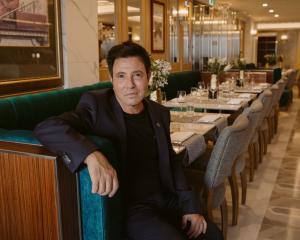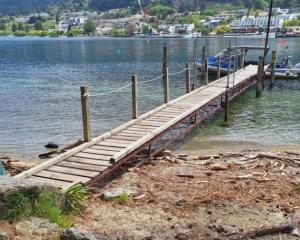The safety of the Cascade Saddle, in Mt Aspiring National Park, came under the spotlight in Queenstown yesterday, when Otago-Southland Coroner David Crerar stated there had been ''far too many deaths'' in the notoriously treacherous area.
His comments came at the beginning of an inquest into the death of German tourist Frank Spychalski (38), a senior software engineer for Google, who died on November 29, 2012 from head injuries, after falling about 200m from the saddle down a steep gully.
Mr Spychalski was the second man to die in the area in 18 months, and one of at least 12 to have died there in recent years.
Senior Constable Chris Blackford, of Queenstown, told Mr Crerar he was ''playing devil's advocate'' when he asked if there would come a point where the track should be closed.
''If this were a highway and there were this number of fatalities on it, the road controlling authority would be looking at it very closely.
''I just wonder if it gets to a point ... if it can't be engineered to make it safe ... would there be a consideration to close that track because too many people have died on it?''
At Mr Crerar's request, a review of the area was undertaken by representatives from the Department of Conservation, Wanaka police Search and Rescue, New Zealand Mountain Guides and Alpine Cliff Rescue in March. They looked at safetyoptions including signs, structures and education.
The group felt an independent review of the route was a good idea and said signs should ''shout'' the messages and warnings more clearly.
Structures were ''not an option'' as far as the group was concerned and it felt there was an individual responsibility for anyone entering the back country.
Yesterday Mr Crerar took advice on a fixed wire rope, or similar, in the area to assist climbers, and closing the saddle during winter months, but both had associated issues.
Snr Const Michael Johnston, of Wanaka said Mr Spychalski was located in the most high-risk area of the Cascade Saddle, a steep section just before the ''Pylon'', particularly treacherous if it was snow-covered.
''If someone falls and is unable to self-arrest ... they will most likely follow the natural fall line, which is over the spur and into the near vertical gullies.''
Mr Crerar heard Mr Spychalski - who was relatively experienced - had travelled to New Zealand to complete the Te Araroa trail from Nelson, but abandoned that trip and instead travelled to Wanaka on his own.
After staying two nights, on November 28 he planned to hike in the Mt Aspiring National Park to French Hut.
Former Doc hut warden Stuart Thorne said he spoke to Mr Spychalski on the track about his plans to go over the Cascade Saddle and told him ''without an ice axe and crampons, I would definitely not recommend it''.
Mr Spychalski had neither. Mr Thorne said Mr Spychalski told a tourist he would set off early the next day and if he felt uncomfortable, he would return to the Raspberry Flat.
Snr Const Johnston said almost a month later, New Zealander Carla Braun-Elwert, who had met Mr Spychalski in Germany, raised the alarm with Wanaka police, after realising no-one had heard from him since November 28.
About 5pm on December 24 police found his dust-covered rental vehicle in the Raspberry Flat car park.
Snr Const Johnston said given the limited information available and the time lapse since the last known contact with Mr Spychalski, two SAR teams were deployed the next morning, to an area just below the Pylon. Mr Spychalski's body was found about 200m down a steep gully section of the main spur of the Cascade Saddle.
Mr Crerar said it was possible he had fallen victim to ''summit fever'' - knowing he only had a few more steps to take to reach the top, when it may have been prudent to have stopped.
Snr Const Johnston said Mr Spychalski had been wearing shoes designed for trail running. They did not provide ankle support, the soles were not ridged, the tread was not exceptionally deep and the rubber lugs were smooth.
Anne Braun-Elwert, of Tekapo, attended the inquest on behalf of Mr Spychalski's family in Germany.
Mr Crerar reserved his finding, which would be issued in a provisional form ''to allow Doc in particular ... to consider what I'm saying''.












